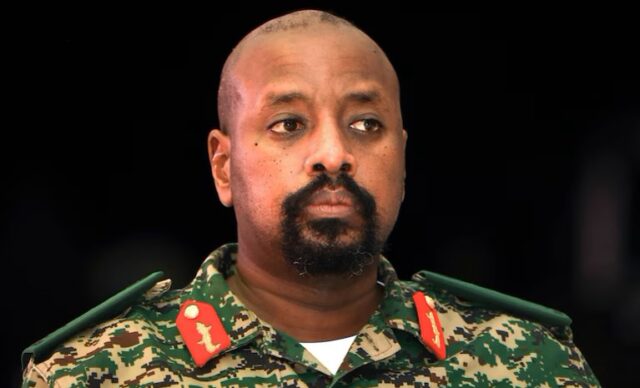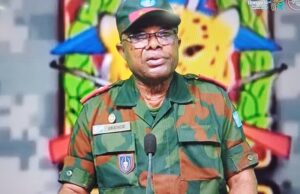
(3 Minutes Read)
Kainerugaba was promoted to his new post recently according to a military statement. Two of his closest advisors have been given ministerial posts in a reshuffle of government ministers, also announced late Thursday, fueling speculation that Museveni supports Kainerugaba’s political activities.
Uganda’s President Yoweri Museveni appointed his son as top commander of the military. Museveni’s son, Gen. Muhoozi Kainerugaba, has recently been holding rallies around the country. It violates a law barring serving army officers from engaging in partisan politics. But Kainerugaba says his activities — including the recent launch of an activist group known as the Patriotic League of Uganda — are nonpartisan and aimed at encouraging patriotism among Ugandans.
Kainerugaba was promoted to his new post recently according to a military statement. Two of his closest advisors have been given ministerial posts in a reshuffle of government ministers, also announced late Thursday, fueling speculation that Museveni supports Kainerugaba’s political activities.
Read Also:
https://trendsnafrica.com/ugandas-coffee-exports-fall/
https://trendsnafrica.com/talks-in-progress-uganda-contemplates-import-of-oil-through-dar-port/
Museveni, who first took power by force in 1986 and has been elected six times, has not said when he will retire. He has no rivals within the ruling National Resistance Movement party — the reason many believe the military will have a say in choosing his successor. Kainerugaba’s allies are strategically deployed in command positions across the security services, according to observers.
Uganda’s next presidential election will be held in 2026. Kainerugaba’s supporters say he offers Uganda the opportunity of a peaceful transfer of power in a country that has not had one since independence from British colonial rule in 1962. But opposition leaders, critics, and others eager for change say his rise is leading the East African country toward hereditary rule.











